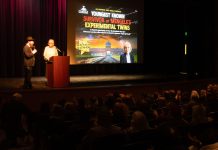Readers call into question a letter writer’s views on the city
pay policy and express concern on the proposal to build a huge new
mall
Letter Writer Has the City Pay Policy All Wrong in Many Ways
Dear Editor,
In Thursday’s Dispatch, James Brescoll wrote a factually inaccurate letter to the editor. About half way through his letter, Mr. Brescoll tries to explain the City of Gilroy’s methodology of how we adjust salaries based on other city comparison data. Unfortunately, his description was wrong.
First, when Gilroy compares our job classification to the survey cities’ job classification, the guideline used is that the City of Gilroy’s salary for that position should be 10 percent above the AVERAGE of the comparable salary. It is not based on the highest salary of all the cities compared, as outlined by Mr. Brescoll.
Second, salaries are adjusted in this manner only when a comparison survey is done, NOT every time a comparison city alters their salary schedule. Before the 2006 market survey for the exempt group, the last market comparison for the exempt group was done in 2000. I do not anticipate another one being completed until well after the turn of the decade.
Also, salary comparisons are done for each of the employee groups, and the 10 percent above average pertains to them all. The police and fire unions had salary comparisons completed as part of their last union negotiations. The Miscellaneous Group had their comparison done in 2001, with salary adjustments made in 2002 and 2003.
After explaining his methodology, Mr. Brescoll asks the question “Does this make sense?” My answer is “no”, as the system Mr. Brescoll describes is not used in any governmental jurisdiction I know of, and it certainly is not used in Gilroy.
Jay Baksa, Gilroy city administrator
Westfield Wants to Gobble Up Fertile Farmland for a Mall
Dear Editor,
Farming is not a luxury or a quaint pastime. It is how we grow our food. We often take it for granted that our grocery stores are stocked with a variety of food items and that those food items are safe for our consumption. We don’t think about where those items came from and how they were grown.
Westfield corporation would like to build an outdoor shopping mall on Gilroy’s most fertile soil. This soil provides us with some of the food we find in our grocery stores. We should protect our farmland from development so that we may continue to have a variety of food that is safe for our consumption.
Farmland in Santa Clara County is being developed at a rate of 1,664 acres per year. Each year in the United States, an area the size of Delaware is lost to development. The big picture is that farmland is disappearing at an alarming rate in our county, our state, and our country. If we don’t have fertile soil to grow our food, then we become dependent on other countries for food. This could greatly impact the quantity, quality, and safety of our food.
We need to carefully consider losing Gilroy’s fertile soil to a shopping mall that, instead, could be developed in the many vacant buildings downtown. We need to always remember the importance of our farming operations and the future of our food supply.
Dana Wolfe, Gilroy












